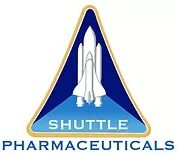Diagnostics
PC-Rad Test
PC-Rad Test
The key unmet need of the diagnostic market is having a predictive, minimally invasive blood test that provides the clinician and patient with a measurement of the potential success of radiation therapy for their cancer treatment. This unmet need in the market is what our predictive biomarker program looks to address.
Our strategy is to develop a predictive diagnostic test for prostate cancer patients who are considering elective radiation therapy which will allow them to assess their risk for treatment success or failure, while informing therapeutic decision making and follow-up management.
We believe a predictive diagnostic test for the effects of radiation therapy would be a cost-effective approach to inform clinicians in their treatment choices and provide patients with a better understanding of the benefits and risks of radiation therapy.
The Unmet Need
Prostate cancers vary in their aggressiveness and in their responses to treatment. Some prostate cancers spread quickly to other parts of the body, while others grow slowly and can be effectively managed by radiation therapy or other conservative medical measures.
While diagnostic tests are available, presently there are no predictive diagnostics tests to identify potential outcomes of available therapies
Advancing Predictive Biomarkers
Our mission is to accelerate investigation of the prostate cancer metabolite-based predictive assay to improve outcomes of radiation therapy. We aim to change the way that clinicians select patients for radiation therapy and provide informed consent. The potential market for these predictive assays includes clinicians offering radiation therapy for prostate cancer treatment in the initial selection process and in personalizing follow up management of patients by considering anticipated late effects.
We have entered into an exclusive agreement to license certain intellectual property from Georgetown University to advance our predictive biomarker program for prostate cancer. The intellectual property was originally developed through a collaboration of Shuttle Pharma scientists with investigators from Georgetown University.
